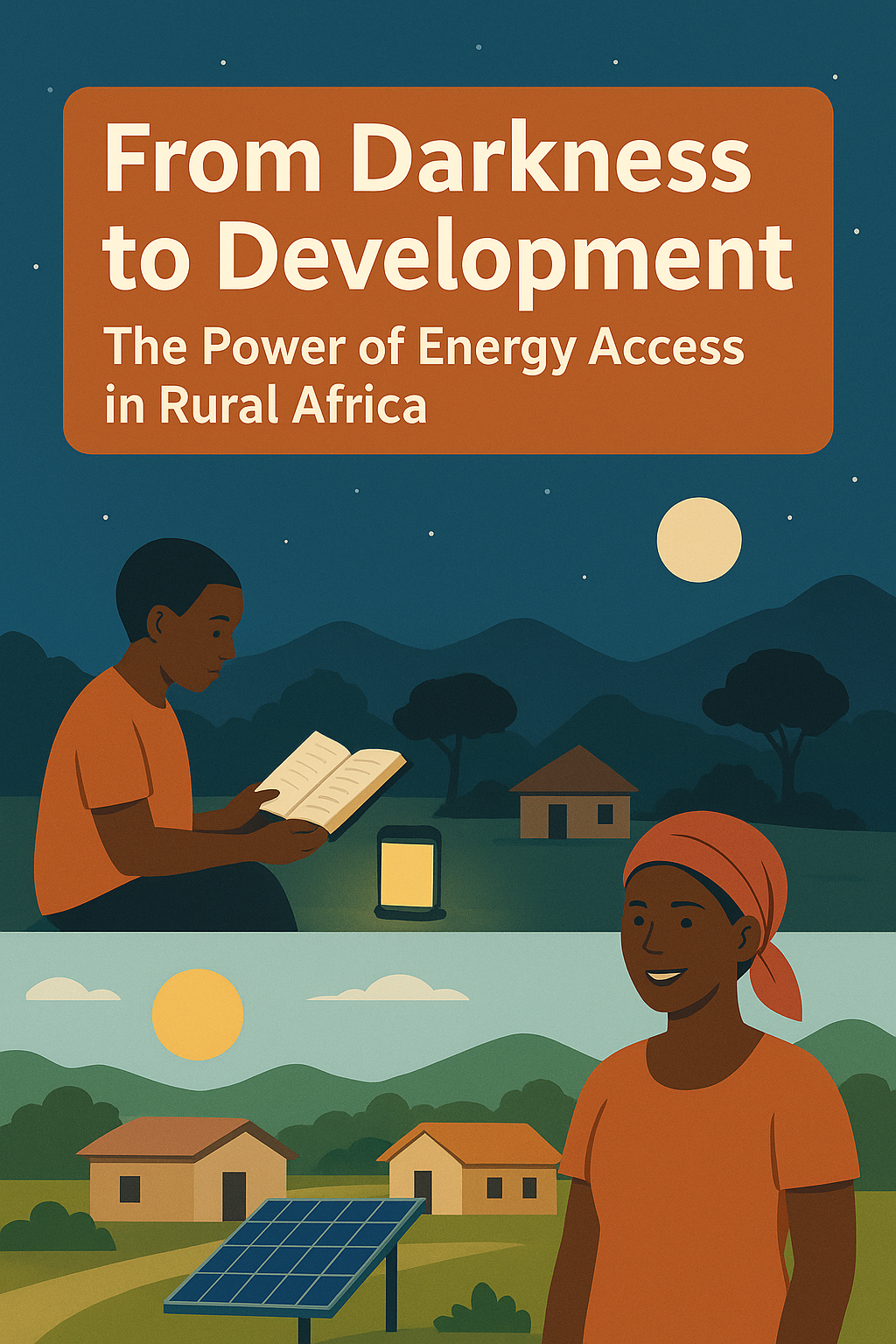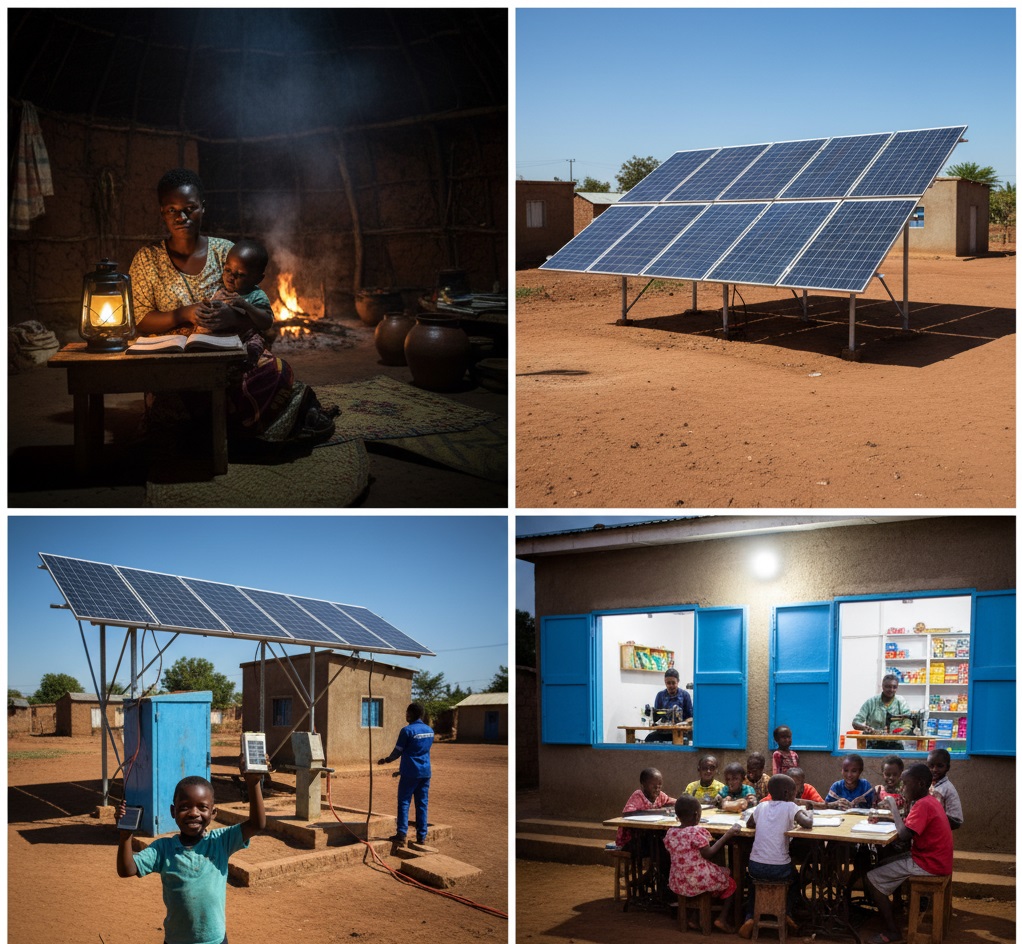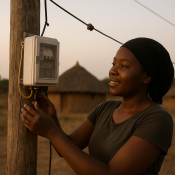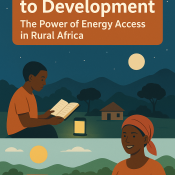
From Darkness to Development: The Power of Energy Access in Rural Africa
Across vast stretches of rural Africa, when the sun sets, darkness settles, not just over the land, but over opportunity itself. For millions, the absence of reliable electricity means limited access to education, healthcare, information, and economic growth. Yet today, a quiet revolution is unfolding. Across the continent, the expansion of sustainable energy access is turning darkness into development, one light at a time.
The Reality of Energy Poverty
Over 500 million people in sub-Saharan Africa still live without electricity. In many rural communities, households depend on kerosene lamps for lighting, firewood for cooking, and diesel generators for power — all expensive, polluting, and inefficient. This energy poverty restricts human potential in profound ways.
Children cannot study after sunset. Health centers cannot refrigerate vaccines or power critical equipment. Entrepreneurs are unable to operate machinery or preserve goods. Without energy, development itself remains out of reach. In short, where there is no power, progress stands still.
Electricity as a Catalyst for Change
Energy access is not merely about light bulbs — it is about lifelines. When rural communities gain access to electricity, every aspect of life begins to change.
- Education Illuminated:
Electrified schools can extend learning hours, power computers, and connect students to global knowledge networks. A single solar light in a student’s home can make the difference between failing and excelling. - Healthcare Transformed:
Clinics with reliable electricity can refrigerate vaccines, power diagnostic tools, and ensure safe childbirth at night. For rural mothers and children, this often means the difference between life and death. - Economic Growth Ignited:
From agro-processing to tailoring and phone charging businesses, electricity opens the door to small enterprises and job creation. Rural electrification fuels local economies, enabling communities to become self-sustaining. - Gender Equality Empowered:
Energy access also liberates women from time-consuming household chores like collecting firewood. It provides opportunities for women to pursue education, entrepreneurship, and leadership within their communities.

Innovation Lighting the Way
The journey toward universal energy access in Africa is being led by innovation. Traditional power grids are often too costly and slow to reach remote areas, but off-grid and mini-grid systems powered by solar, wind, and micro-hydro are transforming the landscape.
Startups and social enterprises are pioneering models like Pay-As-You-Go (PAYG) solar, which allows households to purchase energy in small, affordable increments through mobile money. Smart meters and digital platforms are ensuring efficient distribution and transparency, while battery storage technologies are making renewable energy more reliable than ever.
In Kenya, Nigeria, Rwanda, and Ghana, these solutions are not only lighting homes — they are powering rural economies and inspiring hope for an energy-secure future.
Partnerships Fueling Progress
The success of rural electrification depends on strong collaboration between governments, the private sector, and local communities. Policy reforms, investment incentives, and international partnerships are key to scaling these solutions.
Initiatives like “Power Africa”, the African Development Bank’s “Desert to Power” project, and numerous local microgrid ventures are proof that shared vision and coordinated effort can turn bold ideas into real impact.
From Light to Lasting Development
The power of electricity is more than the sum of its kilowatts. It symbolizes dignity, opportunity, and progress. When a child studies under a solar lamp, when a midwife operates under reliable light, when a small business owner keeps their store open after dark — development is happening in real time.
The path from darkness to development is not just about providing power; it’s about empowering people. As Africa continues to harness its vast renewable resources, the continent is not merely lighting its villages — it’s lighting the way toward a brighter, more equitable future.




